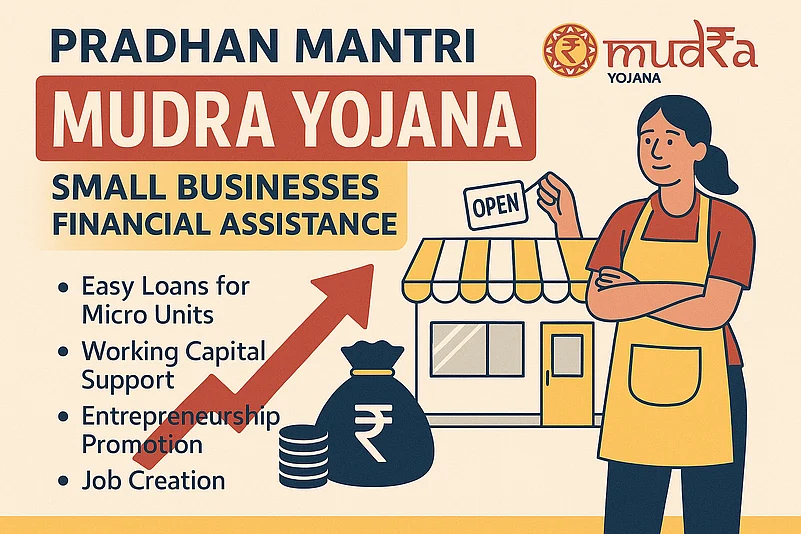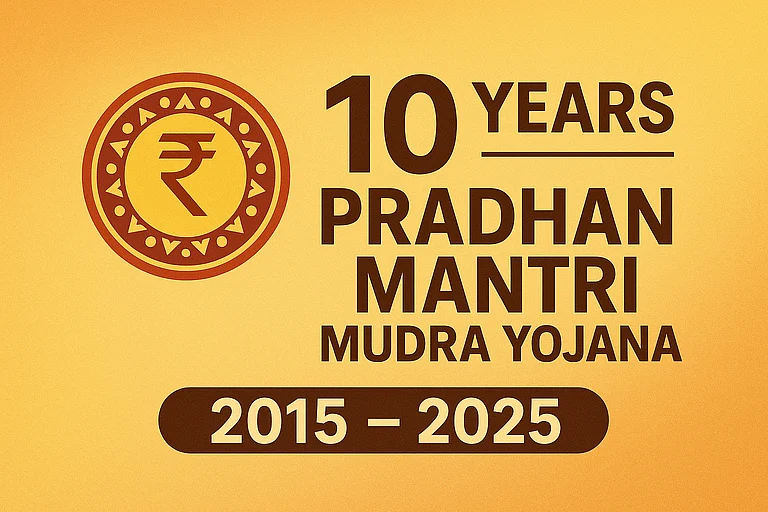Many people from all across the country are opening their small businesses by taking hefty loans. If the business runs well, the person can easily pay back the loan whereas the loan payment in case of a decline in profits or instability can prove to be a financial burden. Many have to sell assets to return the loan. Such bank loans are not feasible for every type of person mosty those with low income or no income to begin with.
However, the Pradhan Mantri Mudra Yojana (PMMY) is a government initiative offering loans of up to Rs 10 lakh to those with strong business ideas but facing financial constraints. The limit has been increased to Rs 20 lakh, allowing more people to turn their dreams into reality. The scheme provides financial support to those struggling with a lack of money, and its purpose is to help individuals turn their dreams into reality.
What is PM Mudra Yojana?
Pradhan Mantri Mudra Yojana was launched in 2015 by PM Narendra Modi, which aims to provide financial assistance to small businessmen looking to open a business or expand an existing one in the non-corporate or non-agricultural sector. A small business like a beauty salon or parlour, general store, boutique or any small innovative startup can be financed under this scheme, and the eligible can get a loan without any security or guarantee. PMMY is run by the Micro Units Development and Refinance Agency (MUDRA). Mudra means promoting small businesses and meeting their needs. These loans are given through banks, non-banking financial companies (NBFCs) and microfinance institutions.
Under the Mudra scheme, loans have been divided into four sub-categories. These categories are:
Shishu: This Category allows loans up to Rs 50,000. This limit is set in mind for those who want basic financial assistance to merely start their small business
Kishore: Kishore category allows a loan between amount of Rs. 50,000 to Rs. 5,00,000 for a little more expensive endeavours where raw materials or machinery is needed such as a parlour, salon or a boutique
Tarun: The Tarun Category allows loans between Rs 5 lakh to Rs 10 lakh for those with other innovative ideas or expansion of their existing small businesses
Tarun Plus: Recently the government has added this new category, in which one can get a loan between the limit of Rs 10 lakh to Rs 20 lakh. But this loan will be available only to those people who have previously taken a loan under the Tarun category and repaid it on time showing their creditworthiness
The new Tarun Plus category was announced by Finance Minister Nirmala Sitharaman in the July 2024 Budget. It aimed at further supporting entrepreneurs who want to take their businesses to the next level.
Who can take a loan?
The Mudra scheme allows Indian citizens to start or expand small businesses related to the non-agricultural sector, such as tailoring, beauty Parlors, small shops, or service-based businesses. The scheme has primarily benefited women and weaker sections of society, with over 70 per cent of loan takers being women and over 50 per cent given to SC, ST, and OBC communities. This not only promotes business but also strengthens social inclusion, as more than 70% of loan takers are women.
How to get a loan
To initiate a loan request or get more information, you can also visit the official website of Mudra - mudra.org.in. There, you will get different options for each category.
You can download the form from the website for the desired amount. You will have to mention their business idea and its requirements. Along with the form, some documents are required to be attached, such as:
Aadhaar card, PAN card, or any other identity proof
Proof of business (if the business is already running)
Bank account details
The Mudra loan interest rate is not fixed and varies based on business type and risk. It typically ranges from 9-12 per cent per annum and is available without collateral, eliminating the need for property mortgages. The repayment time for the loan also depends on the business and loan category, with Shishu loans typically having a 3-5 year repayment period, while Tarun and Tarun Plus loans may have longer repayment periods.
How much loan has been disbursed so far
According to the Finance Ministry report, this scheme was started ten years ago. It has disbursed more than 52 crore loans so far. The total amount accounts for more than Rs 32 lakh crore. Prime Minister Modi had said a few months ago that more than Rs 33 lakh crore collateral-free loans had been given under this scheme. These loans not only help in starting a business, but also motivate people to become job creators instead of job seekers. It promotes entrepreneurship for those without any financial assistance.
As of February 28, 2025, Tamil Nadu has the highest loan amount of Rs 3,23,647.76 crore under the Pradhan Mantri Mudra Yojana. It is closely followed by Uttar Pradesh with Rs 3,14,360.86 crore and Karnataka with Rs 3,02,146.41 crore. West Bengal and Bihar also made large disbursements, while Maharashtra ranks sixth with Rs 2,74,402.02 crore. The scheme has had a wide impact and a significant reach in major states over the last ten years.
But avoid getting duped into taking it
According to a report by the news website Moneycontrol, many scammers in the market people make false promises and collect money in the name of processing fees. It is highly important to have full information from a reliable source about the scheme and ask for the identity of the person while you are giving your financial details. Therefore, always get information from the official website or your bank only. If someone asks you for more money for processing fees, then be cautious.












